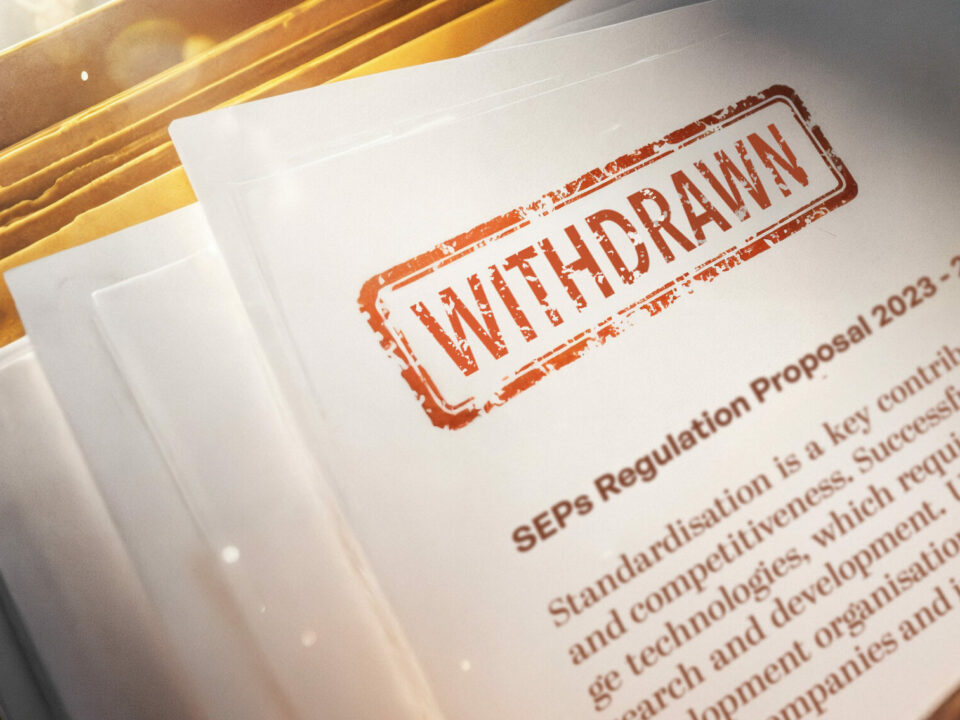Choose Europe, yes – but for innovation or more regulation?
The European Commission says it wants to do more to promote science and innovation in Europe. Can it resist the temptation for more regulation instead?
In May, European Commission President Ursula von der Leyen told students at the Sorbonne in Paris that “the return on investment in science is unparalleled.” She announced a programme called the Choose Europe Initiative designed to attract more scientists to bring their research to Europe. She said this at a time other regions—the United States in particular—are actively pulling funding from scientific research even as they push a deregulation agenda.
“We want Europe to continue to be at the forefront of fundamental research,” she said. “We want Europe to be a leader in priority technologies from AI to quantum, from space, semiconductors and microelectronics to digital health, genomics and biotechnology. We want scientists, researchers, academics and highly skilled workers to choose Europe.”
Many of her specific proposals resonated with the members of IP Europe. The association represents innovative companies and research institutes whose fundamental R&D efforts contribute to better communications technologies such as those in the 5G, Wi-Fi and latest audiovisual compression standards.
For example, Pres. von der Leyen said Europe needs to offer business better incentives to invest. She also said Europe needs to “fast-track the pathway from breakthrough science to transformative innovation and business opportunities.” The Commission subsequently published a new Startup and Scaleup Strategy “to remove regulatory and other barriers, and to facilitate access to venture capital for innovative European startups and scale-ups.” She also announced plans for a first-ever European Innovation Act later in the year.
We applaud all such initiatives. The EU’s top economic advisers have advised reducing the burden of business regulation on all companies across the 27-nation bloc to promote innovation and economic growth. At a recent event in Brussels, Enrico Letta, a former Italian prime minister and President of the Jacques Delors Institute, said Europe continues to thwart the best intentions of both businesses and ordinary citizens with unnecessary regulations that hinder its attractiveness as a place for entrepreneurs to invest.
Encouraging private investment is key
Europe needed to do a much better job of creating an ecosystem that welcomes private investments in innovation, not push more regulation, he said. And while Pres. von der Leyen’s Sorbonne speech focused entirely on public money, Mr. Letta said “private investment is key” to innovation, growth and Europe’s competitiveness.
It will come as no surprise to the regular readers of this blog that IP Europe has taken issue with the Commission’s proposed Regulation on Standard-Essential Patents (SEPs) as a prime example of over-regulation that would mark an own goal for Europe. Licensing revenues from patents incentivise companies and research institutes to invest in the development of innovative new technologies and technical standards. That’s a time-consuming process with no guarantee of success. By limiting the ability of companies to collect licence fees for their inventions, the proposed SEP regulation risks undermining incentives for research and innovation in Europe, ultimately weakening the region’s leadership in strategic global standardised technologies.
When it announced its work programme earlier this year, the Commission announced its intention to withdraw the proposed SEP regulation in the context of reducing burdensome regulation and enhancing Europe’s competitiveness. The move indirectly acknowledged our concerns. Ever since, however, Europe’s automotive industry and Big Tech players have been advocating to put the SEP proposal back on the regulatory agenda, likely aiming at advancing short-term commercial interests. Both sectors are significant users of standardised technologies and net licensees of SEPs.
Given the massive criticism and concerns that experts raised over the last two years about the potential unintended consequences of the proposed SEP regulation, withdrawing it represents a positive and forward-looking decision that aligns with Europe’s broader strategic priorities, including innovation, growth and competitiveness.
In her Sorbonne speech, Pres. von der Leyen said Europe was choosing “to put research and innovation, science and technology, at the heart of our economy.” We hope this vision will continue to guide the Commission’s decision to confirm the withdrawal and support the innovation ecosystem it seeks to strengthen.




